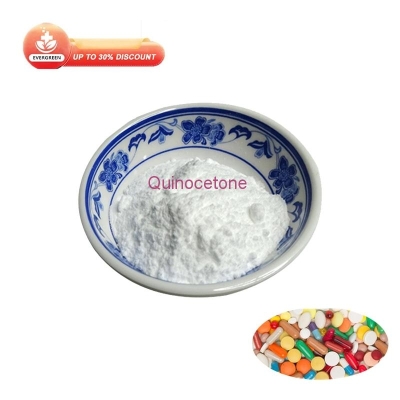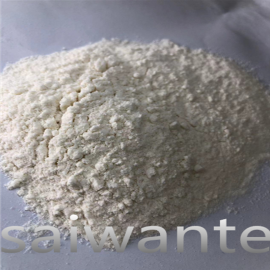Will multinational pharmaceutical enterprises finish the "kill" academic conference?
-
Last Update: 2014-11-21
-
Source: Internet
-
Author: User
Search more information of high quality chemicals, good prices and reliable suppliers, visit
www.echemi.com
Source: Southern Metropolis Daily, Nov 21, 2014, guide: illegal academic conferences were investigated, but the academic conferences were almost the same, the difference was that they were not strictly examined? When the academic conferences were put into the anti-corruption vision and supervised, the so-called academic winners may not be optimistic in China's future According to IMS research, at present, multinational pharmaceutical companies only account for 24% of China's pharmaceutical market, which is significantly lower than the share of 27.7% four years ago As the Chinese Medical Association, a big academic conference holder, was just revealed, it collected 820 million yuan of sponsorship fee from medical enterprises for two years through the academic conference and the event of "check out" of Shanghai blood conference Some foreign-funded enterprises believe that in the future, the expectation of "moving the knife" for academic conferences will further suppress foreign capital's operation in China As we all know, academic marketing in the form of academic conferences is a common practice of global multinational pharmaceutical companies, and also an important weapon for these pharmaceutical giants to keep their performance evergreen Take GSK (GlaxoSmithKline), which has been accused of paying bribes through academic conferences, for example After the company suspended relevant activities, its performance fell sharply In the future, how to define whether to violate the rules and how to prevent "one size fits all" are the topics most concerned by most pharmaceutical companies, especially multinational pharmaceutical companies in China How can academic conferences influence performance? What does it mean for an innovative prescription drug company? The case of GSK (China) may provide an answer According to the report of the police, GSK (China) key account team, marketing department of each business unit and other departments bribe the medical personnel participating in the meeting by inviting non-state staff engaged in medical work from medical institutions all over the country to participate in various domestic and foreign meetings sponsored and organized by them, paying travel expenses, lecture fees, arranging tourism and other ways In order to achieve the purpose of making GSK (China) all kinds of drugs enter medical institutions in various regions with the support of medical staff attending the meeting After the bribery incident, GlaxoSmithKline decided to break the arm reform in order to maintain the foundation of its business in China, and the academic conference was interrupted for a time This reform led to a slight drop of 0.2% in the company's pharmaceutical sector revenue and a 4% drop in overall operating profit in 2013 In the third quarter of last year, GSK's sales of prescription drugs and vaccines in China fell 61% year on year Because the drugs in the public and medical insurance hospitals in China are purchased by centralized bidding, whether they can be sold to the patients in the hospital ultimately depends on the doctor's prescription In this way, it is often an important purpose of the sponsorship of major pharmaceutical companies to establish a cooperative relationship with the doctors who have the power of drug use and the relevant directors of hospitals After the GSK incident, multinational pharmaceutical companies were in danger of the Chinese people After some companies strengthened their compliance adjustment, they also suspended their academic activities for a while, which made many pharmaceutical companies operating in China lament that it was not easy Some data show that the growth of multinational pharmaceutical enterprises was slow in the first quarter of this year Even though some enterprises accelerated their growth in the second quarter, some enterprises are still slowing down Novartis, for example, saw its growth rate fall to 17% in the first quarter of this year and a further drop to 13% in the second quarter Novartis' product portfolio covers cardiovascular, oncology, ophthalmology and generics in great demand in China GSK has yet to shake off the shadow of China's compliance investigation In the second quarter, GSK's sales continued to decline, reaching 25%, more serious than in the first quarter In addition, data from domestic and foreign drug distribution giants also show that the impact of pharmaceutical academic will reduce the demand for foreign drugs According to the report for the half year of 2013, Shanghai Pharmaceutical introduced that in 2013, the sales of joint ventures and imported products accounted for 48.48%, down 5.17% from last year Local pharmaceutical companies still lament that the reduction of strong foreign academic conferences and the strengthening of anti-corruption efforts are making the share of multinational pharmaceutical companies in China continue to decrease This is what Wang Lei, vice president of AstraZeneca investment (China) Co., Ltd., said in his speech and in the interactive link at the health policy Shanghai round table hosted by CEIBS in September 2014 According to IMS research, multinational pharmaceutical enterprises account for only 24% of China's pharmaceutical market Through observation in recent quarters, the market growth rate of foreign enterprises is slower than the market average, so the proportion of foreign enterprises is expected to continue to decline 24% of the data is significantly lower than the data four years ago According to the data of the pharmaceutical research and development industry committee of China Association of foreign funded enterprises, in 2010, the share of multinational pharmaceutical enterprises in the Chinese pharmaceutical market was 27.7% This part of the market was occupied by about 25 large multinational pharmaceutical enterprises, while the remaining 72.3% of the market was divided by more than 8000 local pharmaceutical enterprises The data source of the pharmaceutical research and development industry committee of China Association of foreign invested enterprises is mainly based on IMS, but domestic pharmaceutical enterprises generally disagree with this data In their view, foreign pharmaceutical companies have occupied half of the Chinese pharmaceutical market The report on China's drug market issued by the Chinese Academy of Social Sciences in 2013 once pointed out that in the high-speed expansion of the drug market, foreign drugs occupy a remarkable market share The top 10 enterprises in the market share of secondary and tertiary hospitals are mainly foreign-funded or joint venture pharmaceutical enterprises It is reported that in 2011, the ranking of the market share of pharmaceutical enterprises by the Academy of Social Sciences shows that among the top 10 enterprises in the tertiary hospitals, 8 are foreign-funded enterprises, only Shandong Qilu and Jiangsu Hengrui are in the top 10, Pfizer, AstraZeneca, Sanofi, Bayer and Roche are all foreign-funded enterprises, and GlaxoSmithKline was ranked ninth at that time Among the secondary hospitals, Chinese enterprises ranked slightly better, but foreign pharmaceutical enterprises still accounted for an absolute share, with a total of 6 enterprises in the top 10 This year's data from the National Cancer Registration Center also indicates that about 90% of the market share of anti-tumor monoclonal antibodies in domestic sample hospitals is occupied by foreign drugs "In the field of high-end hospital market medicine in China, the joint venture and foreign-funded drugs, mainly innovative drugs, have accounted for 48% of the market share and constantly eroded the share of domestic drugs; while the sales proportion of domestic first-class new drugs is less than 5% The sales proportion of domestic first-class new drugs is less than 5% At the same time, in recent years, the major international pharmaceutical giants have established nearly 20 drug R & D centers in China, further seizing China's drug R & D resources, bringing many adverse factors to the already weak competitive environment of China's drug R & D " Xiao Wei, deputy to the National People's Congress and chairman of Kangyuan pharmaceutical industry, has specially suggested that governments at all levels should further increase their support for domestic drug independent innovation enterprises.
This article is an English version of an article which is originally in the Chinese language on echemi.com and is provided for information purposes only.
This website makes no representation or warranty of any kind, either expressed or implied, as to the accuracy, completeness ownership or reliability of
the article or any translations thereof. If you have any concerns or complaints relating to the article, please send an email, providing a detailed
description of the concern or complaint, to
service@echemi.com. A staff member will contact you within 5 working days. Once verified, infringing content
will be removed immediately.







